Facing Retirement Unprepared: Over Half of Canadians Scramble for Solutions
Over half of Canadians nearing retirement face inadequate savings, a Deloitte Canada survey reveals. To address this, experts recommend creating a detailed retirement plan, utilizing government support like OAS and CPP, and adopting strategic spending and saving habits. Emphasizing the importance of early financial planning, they advise on budget adjustments, leveraging tax-advantaged accounts like RRSPs and TFSAs, and consulting with financial advisers for tailored investment strategies. Starting small and focusing on long-term goals can help build wealth through compound interest and government programs.
End of the Line: Canada Scraps First-Time Homebuyer Incentive Amid Critique and Confusion
The Canadian government’s First-Time Homebuyer Incentive, designed to help new buyers by offering a partial government ownership loan to lower monthly payments, is being discontinued due to its ineffectiveness and criticism. Challenges like income and mortgage limits restricted its usefulness, while the co-ownership aspect complicated matters. Critics suggest simpler solutions like extending mortgage amortizations could be more beneficial. As of the end of 2022, the program had seen about 18,500 applications, utilizing $329 million of its $1.25-billion budget.
Toronto Homebuyers Prioritize Garages Amid Surging Auto Thefts
In Toronto, the rise in auto thefts is impacting homebuyers’ preferences, with many now willing to pay extra for homes that offer a secure space for their vehicles, such as a garage or private driveway. The trend, fueled by concerns over safety and the convenience of not dealing with winter weather conditions, reflects the heightened demand for properties that can provide added security against the backdrop of Canada’s auto theft crisis. Realtors note this shift in priorities as buyers seek to protect their cars from theft, which has become increasingly bold and frequent.
Toronto Home Sales Surge as Buyers Navigate Mortgage Rates
Toronto area home sales rose by 17.9% year-over-year in February, with a slight 0.44% increase in benchmark home prices to $1,093,900. This resurgence in sales activity reflects buyers’ adaptation to the current mortgage-rate landscape, with expectations of future rate cuts. Increased savings for down payments, opting for less expensive homes, or choosing different locations within the GTA are strategies buyers are using to navigate higher mortgage rates. The real estate market is showing signs of traditional activity returning, evidenced by a surge in property viewing requests and showings.
Spring Housing Market Heats Up with Lower Mortgage Rates
Mortgage rates are dropping, offering more attractive options for homebuyers this spring. Nationally advertised fixed rates have decreased, with five-year fixed rates now available for under 5%. For those looking for flexibility, three-year fixed rates are slightly higher but allow for earlier refinancing. Additionally, well-qualified borrowers can access even lower variable rates through big banks, especially if they’re willing to negotiate and potentially start a new banking relationship
Adjustable-Rate Mortgages: Navigating the Future of Home Loans Amid Rate Uncertainty
As homeowners eagerly await interest rate cuts, those with adjustable-rate mortgages (ARMs) might find themselves in a favorable position. Unlike fixed-payment variable-rate mortgages, ARMs adjust monthly payments with prime rate changes, offering potential savings. However, not all lenders offer ARMs, and their benefits can vary significantly. Here are essential considerations: understanding the distinction between ARMs and VRMs, choosing lenders wisely, considering loan compounding impacts, evaluating conversion rates, understanding portability constraints, being aware of potential penalties, considering cashback offers, and navigating varied qualification guidelines.
Bank of Canada Holds Rates Steady Amid Spring Housing Market Concerns
The Bank of Canada maintains its key interest rate at 5%, citing concerns that a cut could fuel an already warming housing market. With inflation nearing the target, yet shelter costs driving price growth, the central bank faces a balancing act between supporting economic recovery and preventing the housing market from overheating. This cautious approach reflects the complexities of managing post-pandemic economic stability and housing affordability.
Cutting Through the Crisis: Innovative Steps Towards Solving Canada’s Housing Challenges
Addressing Canada’s housing supply and affordability crisis requires innovative solutions from policymakers and governments. High interest rates and material costs challenge developers, while taxes and regulations further hinder affordable housing construction. Streamlining approvals and embracing more housing density, particularly in cities, are essential steps forward. Positive measures like transparency in housing data and tax relief for new rentals have been introduced, highlighting a multifaceted approach to overcoming these challenges.
Ontario Developer Sues Over Home Purchase Defaults Amid Rising Market Challenges
A real estate developer in Ontario is suing dozens of buyers who allegedly defaulted on purchases in a Windsor-area subdivision. This reflects a growing trend in the new-build home market where buyers are struggling to complete transactions due to financial difficulties, leading developers to seek legal recourse to recover losses. The lawsuits could potentially lead to millions in damages, highlighting the risks associated with walking away from real estate deals.
-The TanTeam Editorial




